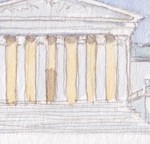
The Foreign Contribution (Regulation) Act, 2010, and the rules framed thereunder regulate ‘foreign contribution’. This post examines how heightened policing calls for stringent compliance by entities receiving ‘foreign contribution’.
Evolving regulatory framework for ‘foreign contributions’
The first law to regulate ‘foreign contributions’ in India, the Foreign Contribution (Regulation) Act of 1976 (“Old Regime”), was passed during the Emergency to safeguard against the misuse of ‘foreign contributions’ for activities that may be detrimental to ‘national security’.[1] This was thereafter … Read the rest



